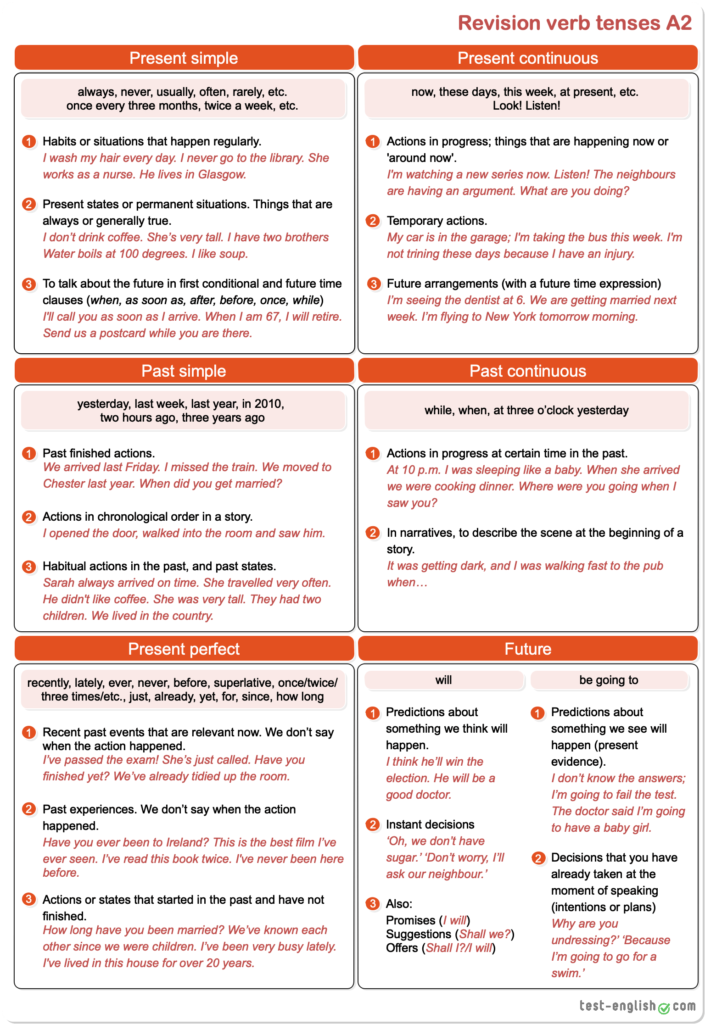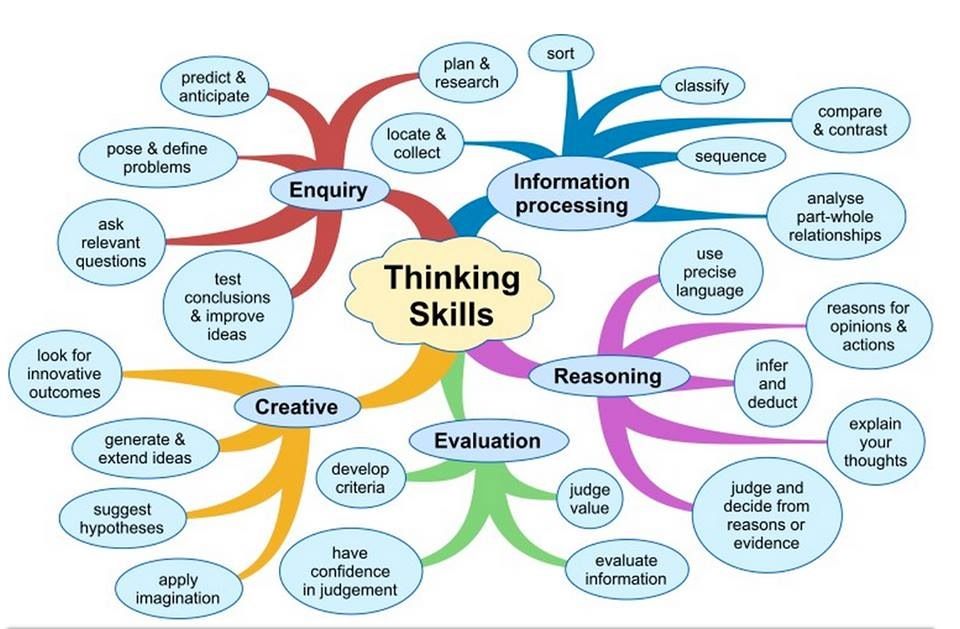How to get over an argument
Stuck in an Endless Argument with Your Partner? Here's How to Move on
It’s not always easy to move on from a disagreement in a relationship. But with a few pointers, you can navigate conflict.
You argued with your partner or someone close to you. You want to move on from it, but you both find it difficult. Is there a way around it?
Avoiding arguments isn’t necessarily the best way to manage friction. Arguments are inevitable in all relationships.
It’s how you handle the situation during and after the disagreement that matters.
Getting over an argument requires looking past your emotions and considering what you want out of the relationship.
Learning to handle the situation and steering the argument into a productive direction is possible.
Arguments can be difficult to settle if you don’t let things go. Arguments can escalate when you have a hard time moving on.
You may hear “get over it” if your partner wants to move past the conflict, but you may not be ready to do that just yet.
Why does this happen?
There are many reasons you’re having a hard time letting go of a topic and feel the need to discuss it over and over again.
Perhaps the problem may not be resolved, and you feel the need to reach a solution. You might feel frustrated that your partner doesn’t seem to have the same urgency to fix things as you might.
When this happens, anger may show up unexpectedly, and your partner may not understand why. This could create more friction and lead to a new or the same argument again.
It may also be that the argument is not really about what you’ve been discussing. Perhaps some other disagreements or emotions haven’t been discussed, which is why this related topic keeps coming up.
If you’re continuously arguing and making up only to argue again, there’s probably something else going on.
Every relationship is different, and the reasons behind your arguments are unique to you.
You just got home after a long day at work, and all you want to do is sit down and relax. Then, your partner enters the kitchen and asks you, “When are you making dinner?”
Then, your partner enters the kitchen and asks you, “When are you making dinner?”
You can feel the frustration building inside you. Consequently, an argument ensues. This is the third night in a row.
This is natural and not uncommon. But constant arguments can take a toll on your overall well-being and relationship.
When you find yourself in a mundane argument, you could consider the following steps to end it.
Take a pause
“Ask yourself how you want to phrase what you’re going to say. This slows down the pace, helps you calm down, and makes you more likely to be heard,” says Brian Wind, a licensed clinical psychologist and adjunct professor at Vanderbilt University residing in Murfreesboro, Tennessee.
“It’s possible that your partner might be emotionally charged and demand that you respond immediately, but be firm,” he says.
Wind also suggests repeating what your partner said so they know you’re acknowledging them. “Most people tend to calm down once they feel acknowledged and are willing to wait,” says Wind.
Consider a repair attempt
To keep your quarrel from getting out of hand is to consider a repair attempt, psychologist John Gottman says in his book, “The Seven Principles for Making Marriage Work.”
A repair attempt de-escalates a conflict while handling it, Gottman explains. This attempt or action could be a word, a silly gesture, or a caring physical approach.
Consider agreeing on repair attempts that won’t offend either partner. The more you know each other, the more effective repair methods you’ll come up with.
10-minute timeout
If you’re becoming upset or want to avoid saying something you might regret, consider telling your partner you need some time and space.
“Tell them you need 10 minutes to calm down, and that you will come back to this,” says Wind. “Come back after 10 minutes, once you have calmed down or are more prepared to handle the conflict. It’s more likely that you can calmly sort out your differences this way.”
Sometimes, it can be challenging to get over an argument, especially if you’re still hurt.
The following tips can be helpful.
Think about the relationship
“The backdrop of moving past arguments must be that the relationship is more important than the argument,” says Ari Hahn, a licensed clinical social worker based in Morristown, New Jersey.
Hanh says it’s essential to let the other person know that they’re more important than your “temporary hurt feelings.”
Hahn also suggests using “I feel statements” when expressing your feelings to your partner.
“Express your feelings in a clear, non-blaming, concise manner,” he says. Expressing your feelings and empathizing with the other person shows them that they matter, even if you’re upset.
Avoiding them isn’t the answer
It’s natural to protect yourself when you feel hurt. This may look like avoiding any contact with your partner or rejecting their attempts to mend things. Yet, it’s a good idea to remember what you want to get out of the argument.
If it’s solving the situation, consider not putting a wall up.
“In order to get over an argument, make sure not to avoid the other person,” says Holly Schiff, a licensed clinical psychologist in Greenwich, Connecticut.
Some space may be needed, Schiff says, but it’s important not to engage in stonewalling.
“Give yourself the time you need, but don’t completely brush them off if you see an attempt to make up,” she says.
Could the other person be right?
Considering that the other person might be right, though easier said than done, could open the doors to moving on from the argument.
Wind suggests trying to think about how your partner may be feeling. Considering alternative versions of the same situation may also help you see your partner’s perspective.
“You might not agree on the issue, and the person might be mistaken about your intentions behind your actions, but the person is never wrong for feeling the way they do,” says Wind.
Even after de-escalating an argument and moving past it, you may find that it’s still bothering you. If you or your partner can’t seem to get past it, it may be a good idea to seek help.
If you or your partner can’t seem to get past it, it may be a good idea to seek help.
A licensed professional therapist can help you learn how to handle arguments or the reasons causing them.
Moving past an argument can be difficult. Though arguments sometimes seem as if they could go on forever, exploring the causes or all the options to resolve them may help.
When arguing with your partner, consider these tips to diffuse the situation:
- taking a pause
- using a repair attempt
- taking a timeout
If you’re trying to let the argument go, consider how much you want to preserve the relationship and how you would feel if you were in the other person’s shoes.
Working on your communication skills may help you get past any argument, but sometimes, you may want to make sure the issue is truly resolved. A mental health professional can help you both.
Stuck in an Endless Argument with Your Partner? Here's How to Move on
It’s not always easy to move on from a disagreement in a relationship. But with a few pointers, you can navigate conflict.
But with a few pointers, you can navigate conflict.
You argued with your partner or someone close to you. You want to move on from it, but you both find it difficult. Is there a way around it?
Avoiding arguments isn’t necessarily the best way to manage friction. Arguments are inevitable in all relationships.
It’s how you handle the situation during and after the disagreement that matters.
Getting over an argument requires looking past your emotions and considering what you want out of the relationship.
Learning to handle the situation and steering the argument into a productive direction is possible.
Arguments can be difficult to settle if you don’t let things go. Arguments can escalate when you have a hard time moving on.
You may hear “get over it” if your partner wants to move past the conflict, but you may not be ready to do that just yet.
Why does this happen?
There are many reasons you’re having a hard time letting go of a topic and feel the need to discuss it over and over again.
Perhaps the problem may not be resolved, and you feel the need to reach a solution. You might feel frustrated that your partner doesn’t seem to have the same urgency to fix things as you might.
When this happens, anger may show up unexpectedly, and your partner may not understand why. This could create more friction and lead to a new or the same argument again.
It may also be that the argument is not really about what you’ve been discussing. Perhaps some other disagreements or emotions haven’t been discussed, which is why this related topic keeps coming up.
If you’re continuously arguing and making up only to argue again, there’s probably something else going on.
Every relationship is different, and the reasons behind your arguments are unique to you.
You just got home after a long day at work, and all you want to do is sit down and relax. Then, your partner enters the kitchen and asks you, “When are you making dinner?”
You can feel the frustration building inside you. Consequently, an argument ensues. This is the third night in a row.
Consequently, an argument ensues. This is the third night in a row.
This is natural and not uncommon. But constant arguments can take a toll on your overall well-being and relationship.
When you find yourself in a mundane argument, you could consider the following steps to end it.
Take a pause
“Ask yourself how you want to phrase what you’re going to say. This slows down the pace, helps you calm down, and makes you more likely to be heard,” says Brian Wind, a licensed clinical psychologist and adjunct professor at Vanderbilt University residing in Murfreesboro, Tennessee.
“It’s possible that your partner might be emotionally charged and demand that you respond immediately, but be firm,” he says.
Wind also suggests repeating what your partner said so they know you’re acknowledging them. “Most people tend to calm down once they feel acknowledged and are willing to wait,” says Wind.
Consider a repair attempt
To keep your quarrel from getting out of hand is to consider a repair attempt, psychologist John Gottman says in his book, “The Seven Principles for Making Marriage Work. ”
”
A repair attempt de-escalates a conflict while handling it, Gottman explains. This attempt or action could be a word, a silly gesture, or a caring physical approach.
Consider agreeing on repair attempts that won’t offend either partner. The more you know each other, the more effective repair methods you’ll come up with.
10-minute timeout
If you’re becoming upset or want to avoid saying something you might regret, consider telling your partner you need some time and space.
“Tell them you need 10 minutes to calm down, and that you will come back to this,” says Wind. “Come back after 10 minutes, once you have calmed down or are more prepared to handle the conflict. It’s more likely that you can calmly sort out your differences this way.”
Sometimes, it can be challenging to get over an argument, especially if you’re still hurt.
The following tips can be helpful.
Think about the relationship
“The backdrop of moving past arguments must be that the relationship is more important than the argument,” says Ari Hahn, a licensed clinical social worker based in Morristown, New Jersey.
Hanh says it’s essential to let the other person know that they’re more important than your “temporary hurt feelings.”
Hahn also suggests using “I feel statements” when expressing your feelings to your partner.
“Express your feelings in a clear, non-blaming, concise manner,” he says. Expressing your feelings and empathizing with the other person shows them that they matter, even if you’re upset.
Avoiding them isn’t the answer
It’s natural to protect yourself when you feel hurt. This may look like avoiding any contact with your partner or rejecting their attempts to mend things. Yet, it’s a good idea to remember what you want to get out of the argument.
If it’s solving the situation, consider not putting a wall up.
“In order to get over an argument, make sure not to avoid the other person,” says Holly Schiff, a licensed clinical psychologist in Greenwich, Connecticut.
Some space may be needed, Schiff says, but it’s important not to engage in stonewalling.
“Give yourself the time you need, but don’t completely brush them off if you see an attempt to make up,” she says.
Could the other person be right?
Considering that the other person might be right, though easier said than done, could open the doors to moving on from the argument.
Wind suggests trying to think about how your partner may be feeling. Considering alternative versions of the same situation may also help you see your partner’s perspective.
“You might not agree on the issue, and the person might be mistaken about your intentions behind your actions, but the person is never wrong for feeling the way they do,” says Wind.
Even after de-escalating an argument and moving past it, you may find that it’s still bothering you. If you or your partner can’t seem to get past it, it may be a good idea to seek help.
A licensed professional therapist can help you learn how to handle arguments or the reasons causing them.
Moving past an argument can be difficult. Though arguments sometimes seem as if they could go on forever, exploring the causes or all the options to resolve them may help.
Though arguments sometimes seem as if they could go on forever, exploring the causes or all the options to resolve them may help.
When arguing with your partner, consider these tips to diffuse the situation:
- taking a pause
- using a repair attempt
- taking a timeout
If you’re trying to let the argument go, consider how much you want to preserve the relationship and how you would feel if you were in the other person’s shoes.
Working on your communication skills may help you get past any argument, but sometimes, you may want to make sure the issue is truly resolved. A mental health professional can help you both.
How to make peace after a quarrel?
Like
22
0
More ideas
How to celebrate the Year of the Yellow Pig: 10 ideas
Getting ready for the New Year and saving: 9ideas
Finding harmony in a rapidly changing world
Have the children grown up and moved away? Remembering life together
Warming the soul and body: the best autumn recipes
12 ideas for cozy evenings with your Beloved
Culinary Date: Cooking with Loved One
Fabulous pumpkin: seasonal recipes with love
Must-See: 15 Movies About Mature Love and Happiness
Woman-muse: how to inspire the Beloved
Why is it not a crime to take a break from each other?
How to keep warm in a relationship?
Apple Paradise: 3 Recipes for Autumn
Keeping Memories: 7 Creative Techniques
Creativity: Unconventional Ways to Show Feelings
9 signs of a mature relationship
How to make your loved one happy: ideas for couples in love from Roza Syabitova
Summer baking: the most delicious recipes
How to add romance and save relationships: Roza Syabitova advises
What the Beloved wants to hear from you
A piece of paradise on 6 acres: decorating the dacha with Beloved
With love for summer: 5 best seasonal salads
Is it necessary to rest from each other?
With love and no extra calories: summer snacks
92 adventure ideas for you and your loved one this summer
Relations after 20 years of marriage deteriorated? Find out why
Simple and tasty: 5 barbecue recipes
Useful weekend: 10 ideas for two
How to spend time together with your loved one: advice from Rosa Syabitova
Country romance: 7 ideas for spring
5 breakfasts from different countries
Spring Update: How to Refresh Relationships
Compromises in relations between a man and a woman: advice from Rosa Syabitova
Dream relationship: getting rid of excess
Nothing superfluous, only love: 5 easy desserts for spring
7 nice ways to be fit
7 ways to cheer each other up
3 unusual romantic desserts
Languages of love: what do you speak with your Beloved?
Learn to listen to your loved one and improve relationships: advice from Roza Syabitova
How to make up after a quarrel: 5 steps
STEP 1.
 Take off the mask
Take off the mask During the day you are in many roles: wife, colleague, daughter, mother ... Each of these roles has rights and responsibilities.
Social masks can literally capture us, and then during a conflict phrases fly by: “You are a bad mother!”, “What kind of a man are you?”, “I ask you like a daughter, but you…” This means that they quarrel your roles and it's time to abandon them, take off the masks, like boring clothes.
Imagine stepping out of your role by stepping back and leaving it in front of you like an uncomfortable space suit. Notice if there was anything useful in this role. For example, if you took off the mask of your wife, then along with her you could also “postpone” love and support. You can imagine that you are "returning" them back to yourself. And what is left, throw it away as unnecessary or hang it in an imaginary closet until you again want to play mother or wife.
Feel what changes have taken place in the body when there is no this exciting role for you? Maybe you feel more relaxed and free? Notice how you now look at the situation.
STEP 2. Become aware of your motivation
There are two types of motivation in any conflict:
pressure or a childish strategy of resentment in order to prove their case.
Military position is also issued by conflict questions:
-
Why..? (subtext “Who is to blame?”)
-
How much can you…? (generalization)
-
Isn't it clear that...? (aggression through imposition of an opinion)
-
Will you ever...? (accusation)
If you go beyond these rigid limits and look at the quarrel as a game situation (not to be confused with mockery), then there will be flexibility and an opportunity to reach an agreement.
Turning on peaceful motivation, you will feel the desire to understand how things really are on both sides and how you can resolve the win-win situation.
STEP 3. Clarify the circumstances
Let's assume that both participants in the quarrel distort reality. Understanding each other's words and actions in their own way, people react not to reality, but to their own assumptions about it.
Understanding each other's words and actions in their own way, people react not to reality, but to their own assumptions about it.
For example, a quarrel began with your conclusion that your partner's forgetfulness about the evening together is a direct disrespect for you. And at this time he worked overtime to bring more money to the family, or was distracted by something important to him - and closed in response to your accusations.
Therefore, if the quarrel is in the active phase, postpone your reaction and clarify with the other person how he sees what is happening. It is quite possible that the situation does not have the subtext that you put in.
“Visit” to a different picture of the world with the help of clarifying questions:
-
Do I understand correctly that…?
-
Can you clarify why you did this?
-
How do you see the situation from your side? I want to understand this because maybe I don't see everything that's going on.

STEP 4. Admit that you understand the person
When they share their vision with you, notice that, most likely, the person did something bad to you not from evil, he did not want to harm or hurt. It’s just that most often we don’t notice the needs of another and act only for our own reasons, thereby injuring loved ones.
Confirm that you have understood the interlocutor. It's not the same as taking his side, it's just acknowledging that you heard him.
After you have recognized your partner's picture of the world, it will be much easier for him to hear your position. To help him, you can say the following:
-
I think I now understand how you see it. Do you want me to tell you how I am?
-
It seems that I took it differently and even started to react. Let me tell you how it happened, and we will think about what to do so that this situation does not happen again.
At the same time, pay attention to what exactly did you react painfully and aggressively to? Was it worth it or were you just tired and irritated? Or maybe these are accumulated expectations that you have been silent about for a long time? Share these realizations with the person, talking only about your feelings.
STEP 5. Come to an agreement
Now take a closer look at your relationship: if you are relatives - from the position of the family, and if, for example, colleagues - from the position of the organization. This perspective helps to see the best option for reconciliation in a quarrel. After all, the main task of any system is to ensure that none of its participants “falls down”, is not pushed through, does not become a victim of manipulation.
To do this, your agreement must have room for free choice, sincerity and specificity (what/where/when/why).
For example: “I felt lonely when you forgot about the evening together. How do you look at scheduling time for us in your schedule? For me it would be very meaningful and pleasant. If you are currently busy at work, then I understand, we will move this conversation to the next weekend and think about what can be done. What do you say?"
Any relationship lives as long as you develop and look at the person from a position of ignorance.














